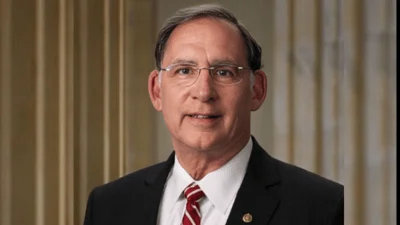Washington, D.C. -On Wednesday, Rep. Raja Krishnamoorthi, the Chairman of the Subcommittee on Economic and Consumer Policy, and Subcommittee Member Rep. Katie Porter sent a letter to National Highway Traffic Safety Administration (NHTSA) Acting Administrator James Owens requesting a staff briefing on proposed improvements to Federal Motor Vehicle Safety Standard No. 213, which governs children’s car seat and booster seat safety.
On March 18, 2020, the Subcommittee called on NHTSA to: (1) raise the booster seat weight minimum recommendation from 30 to 40 pounds, (2) require that manufacturers place a clear and conspicuous labels on booster seats, and (3) finalize a federal side-impact test standard for children’s car seats and booster seats. When NHTSA did not heed that call, on July 1, 2020, Congress passed the Krishnamoorthi amendment to H.R. 2, the Moving Forward Act.
“As NHTSA’s own research notes, there is a 27% increased risk of moderate to fatal injuries for three-to-four-year-olds when restrained in a booster seat compared to a fully-harnessed seat," wrote Krishnamoorthi and Porter. “Recently, NHTSA adopted a standard to recommend that children under 40 pounds should not be placed in a booster seat. However, we are deeply concerned that you did not incorporate two other needed changes included in the Krishnamoorthi amendment."
NHTSA failed to require that manufacturers place a clear and conspicuous label on booster seats, such as the one that would be required by the Krishnamoorthi amendment: “For use of children who are over 40 lbs and four years old or older." NHTSA also failed to advance a side-impact testing rule for car seats and booster seats.
“This is particularly concerning because the Subcommittee is aware that manufacturers continue to take advantage of this key regulatory gap and market unsafe booster seats," added Krishnamoorthi and Porter.
The Subcommittee launched its investigation into children’s car seats on Feb. 12, 2020, when it sent a letter to Evenflo Company, Inc. seeking information about its “Big Kid" belt-positioning booster seat following reports that the seats were misleadingly marketed and not safe for children under 40 pounds.
The Subcommittee requests the briefing from NHTSA by Dec. 2, 2020, to inform its probe into car seat safety.








